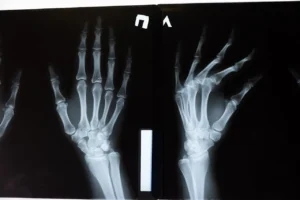
Global biotechnology leader CSL (ASX: CSL) today announced that Swissmedic has authorised HEMGENIX® (etranacogene dezaparvovec), the first and currently only gene therapy for the treatment of male adults aged >18 years with severe or moderately severe hemophilia B (congenital Factor IX deficiency). HEMGENIX® is a one-time, single-dose treatment option that allows people living with hemophilia B to produce their own factor IX, which can lower the risk of bleeding.
The approval is based on results from the ongoing Phase III HOPE-B trial, the largest gene therapy trial in hemophilia B to date. Data from the pivotal trial show that HEMGENIX® reduces the rate of annual bleeding by delivering a functional gene that acts as a blueprint for the production of coagulation factor IX in the liver, a protein that is essential for blood clotting.
“This approval is further demonstration of CSL’s promise to pursue, develop and deliver new innovative treatment options that meet the needs of the rare disease community,” said Emmanuelle Lecomte-Brisset, Senior Vice President and Head of Global Regulatory Affairs, CSL. “We believe HEMGENIX® has the potential to change the treatment paradigm for people living with hemophilia B and the healthcare professionals who treat them, as it addresses the cause of the condition.”
“The approval of HEMGENIX® in Switzerland marks an important milestone for patients, and we look forward to collaborating with the hemophilia B community to provide access to this innovative treatment option,” said Dr. Isabelle Dahinden, General Manager Switzerland, CSL Behring. “We are proud to add this treatment to our portfolio of coagulation therapies and look forward to patients benefiting from this therapy.”
HEMGENIX® has also been approved by the U.S. Food and Drug Administration and authorised by Health Canada, and was granted conditional marketing authorization by the European Commission (EC) for the European Union and European Economic Area, and the United Kingdom’s Medicines and Healthcare products Regulatory Agency (MHRA). The multi-year clinical development of HEMGENIX® was led by uniQure (Nasdaq: QURE) and sponsorship of the clinical trials transitioned to CSL after it licensed global rights to commercialize the treatment.
About Hemophilia B
Hemophilia B is a life-threatening rare disease caused by a mutation on the F9 gene, resulting in low levels of functional clotting factor IX. People with the condition are particularly vulnerable to bleeds in their joints, muscles, and internal organs, leading to pain, swelling, and joint damage. Current treatments for moderate to severe hemophilia B include life-long prophylactic infusions of factor IX to temporarily replace or supplement low levels of the blood-clotting factor.
About HEMGENIX®
HEMGENIX® is a gene therapy that reduces the rate of abnormal bleeding in eligible people with hemophilia B by enabling the body to continuously produce factor IX, the deficient protein in hemophilia B. It uses AAV5, a non-infectious viral vector, called an adeno-associated virus (AAV). The AAV5 vector carries the naturally occurring Padua gene variant of Factor IX (FIX-Padua) to the target cells in the liver, generating factor IX proteins that are 5x-8x more active than normal. These genetic instructions remain in the target cells, but generally do not become a part of a person’s own DNA. Once delivered, the new genetic instructions allow the cellular machinery to produce stable levels of factor IX.
The medical innovations in hemophilia B to date have significantly improved patients’ lives and treatment standards. However, there is still an unmet medical need: even with lifelong prophylactic treatment, recurrent bleeding into the joints, for example, can occur. These can damage the joint, lead to deformities and pain and, in the event of a cerebral hemorrhage, can be fatal. In addition, the fear of bleeding continues to cause ongoing psychosocial stress and physical limitations. The previous lifelong prophylactic treatment in the form of regular injections also means a reduction in quality of life for most patients.
The new gene therapy for hemophilia B patients offers the opportunity to address this unmet need by potentially freeing patients from the burden of frequent infusions and bleeding events in the longer term.




